The US interviews, conducted in the mid-2000s and in 2021-2022, purposefully feature individuals whose activism was less widely covered in the media, and therefore less visible, than the activism generally associated with issues of second-wave feminism. The site team also sought to focus on individuals whose work is intersectional, addressing issues of gender that coexist with other core identities (race, sexual orientation, other-abledness, religion). The interviewees discussed a wide range of topics and issues, including disability rights, Palestinian rights, sexual orientation, artistic expression, homelessness, worker’s rights, gender-based violence, colonialism, welfare rights, and in 2021-2022, Long COVID. For more historical context and information about the United States country site, see our country site introduction. For the thematic film, a useful introduction that provides some more context for feminist activism and scholarship in the US, see our video and transcript. The United States episodes of Contextualizing Feminist Voices, recorded in 2021 and 2022, provides additional information on the country site.

Rabab Abdulhadi
1955-
Rabab Abdulhadi, born in 1955 in Palestine, is an activist and scholar contributing to the struggle for Palestinian self-determination and the well-being of Palestinian women. She was the Director of Political and International Relations at the Middle East Research Center in New York. She helped found the Union of Palestinian Women's Associations in North America during the first Intifada, or Palestinian uprising. At last contact, she was conducting research for the Gender and Sexuality Studies Center, in the Global South Project.
Keywords: reproductive rights, rural women and land reform
Media: Transcript (English), Video, Bibliography, YouTube Video, Name Pronunciation Audio

Adrienne Asch
1948-2013
Adrienne Asch (1948-2013) was an author and an internationally known bioethicist. At the time of her death, she was director of the Center for Ethics and the Edward and Robin professor of biotethics at Yeshiva University in Manhattan. She was also professor of epidemiology and population health at Yeshiva. Adrienne was a long-time member of the board of directors of the American Society for Bioethics in Humanities and served on the Clinton Task Force on Healthcare Reform and the Ethnical, Legal, and Social Implications Policy Planning Group of the National Human Genome Research Institute. The GFP staff note with sadness Adrienne's death in 2013. Read the NYT obituary to learn more about her pioneering work in disability rights.
Keywords: gender and health, disability rights, reproductive rights
Media: Transcript (English), Video, Bibliography, YouTube Video, Name Pronunciation Audio

Grace Lee Boggs
1915-2015
Grace Lee Boggs (1915-2015) was an activist and writer. A daughter of Chinese immigrants, she moved to Detroit and worked in grassroots projects together with her partner, James Boggs. They founded Detroit Summer, an intergenerational multicultural youth movement, and wrote in the Michigan Citizen newspaper. She published her autobiography, Living for Change, and among others, received the distinguished Alumna Award from Barnard College, the Chinese American Pioneers Award from the Organization of Chinese Americans, and a lifetime achievement award from the Anti-Defamation League. A plaque in her honor is at the National Women's Hall of Fame in Seneca Falls, NY. The GFP staff were saddened by Grace's death in 2015. Read the NYT obituary to learn more about her remarkable life, spanning a full century, as a human rights activist.
Keywords: gender and health, community activism, education, intersectionality, politics and the law
Media: Transcript (English), Video, Bibliography, YouTube Video, Name Pronunciation Audio

Cathy Cohen
1962-
Cathy Cohen, born in 1962, is the former co-chair and a founding board member of the Audrey Lorde Project in New York. She served on the board of Kitchen Table: Women of Color Press, and the Center for Lesbian and Gay Studies at CUNY. Cohen was a founding member of Black AIDS Mobilization (BAM) and a core organizer of the International Conference, Black Nations Queer Nations. Cohen has also served as an active member in many organizations, such as the Black Radical Congress, African-American Women in Defense of Ourselves, and the United Coalition Against Racism.
Keywords: LGBTQ rights, intersectionality
Media: Transcript (English), Video, Bibliography, YouTube Video, Name Pronunciation Audio

JD Davids
JD Davids, born in 1967, is a US-based health justice and communications strategist working with national networks of disabled and chronically ill people. He co-founded Strategies for High Impact and its Network for Long COVID Justice in 2021. Davids has been an external expert advisor to the NIH, CDC, and local health departments, and has served as a strategist and organizer with many pivotal groups, including ACT UP Philadelphia, AVAC, the Coalition for a National HIV/AIDS Strategy, Health GAP, the Health Not Prisons Collective, the HIV Prevention Justice Alliance, Positive Women’s Network – USA and the U.S. Caucus of People Living with HIV. As a queer and trans person living with myalgic encephalomyelitis (ME/CFS), Long COVID and other complex chronic conditions, he writes and hosts conversations for The Cranky Queer Guide to Chronic Illness (@TheCrankyQueer), sits on the board of #MEAction and is a contributing member of the Patient-Led Research Collaborative, which released the first comprehensive study on Long COVID.
Keywords: activism during the COVID-19 pandemic, community activism, disability rights, gender and health, international rights
Media: Transcript (English), YouTube Video, Name Pronunciation Audio

Holly Hughes
1955-
Holly Hughes, born in 1955, is a performance artist. She became a member of the WOW cafe, a feminist collective and works on issues of sexuality, identity, personal narrative, and freedom of expression. She has performed across the USA, Canada, and Great Britain at venues ranging from cultural institutions to alternative spaces. At last contact, she was teaching at the University of Michigan.
Keywords: art/writing as activism, LGBTQ rights
Media: Transcript (English), Video, Bibliography, YouTube Video, Name Pronunciation Audio
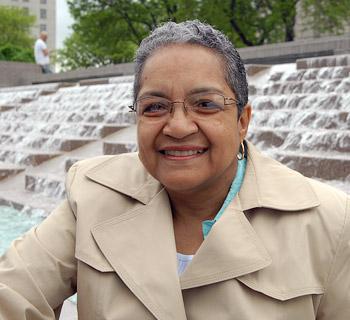
Marian Kramer
Marian Kramer (interviewed with Maureen Taylor) at last contact was the co-chair of the National Welfare Rights Union. She has fought government programs, such as Workfare, defended poor women against unjust persecution for welfare fraud and led campaigns to elect the victims of poverty to political office. She has organized poor people's movements, housing takeovers by people without homes, and led efforts to unionize in the South. She has received many community service awards and mentors college students fighting poverty. Taylor and Kramer spoke at a rally in Detroit, Michigan in June 2020, and a video of their speech recorded by the group Detroit Will Breathe can be found here.
Keywords: gender and health, media, community activism, politics and the law
Media: Transcript (English), Video, Bibliography, YouTube Video, Name Pronunciation Audio
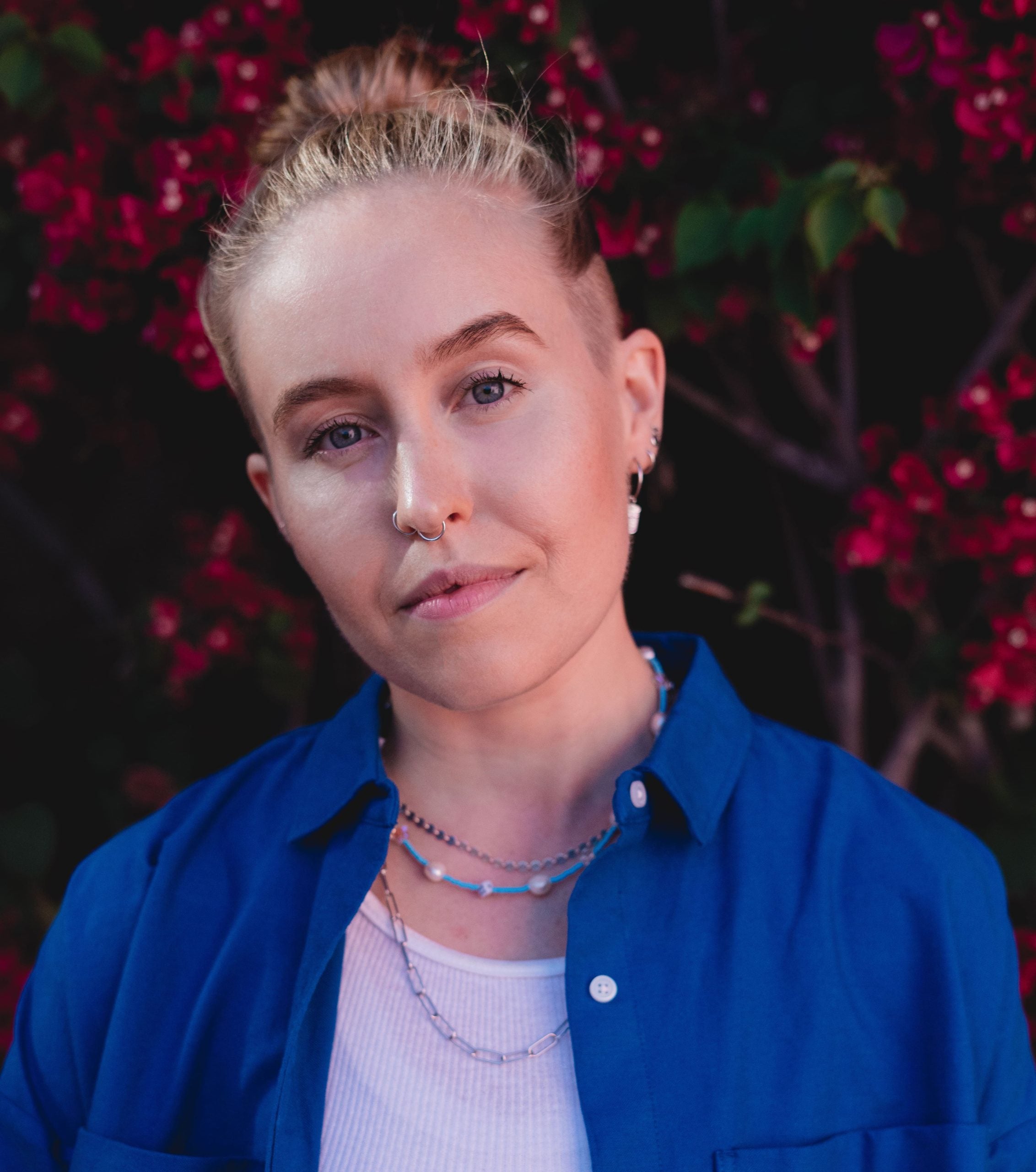
Fiona Lowenstein
Fiona Lowenstein, born in 1993, is an award-winning independent journalist, producer, and speaker, covering health justice, wellness culture, LGBTQ+ issues and more. Their work has appeared in The New York Times, Teen Vogue, Vox, The Guardian, and Business Insider, among other publications. Fiona is the founder of Body Politic – home of the original Long COVID support group. They are also the editor of the recently published anthology, THE LONG COVID SURVIVAL GUIDE, out November 2022 from The Experiment. Photo credit: JJ Geiger
Keywords: activism during the COVID-19 pandemic, community activism, disability rights, gender and health, intersectionality, media
Media: Transcript (English), YouTube Video, Name Pronunciation Audio
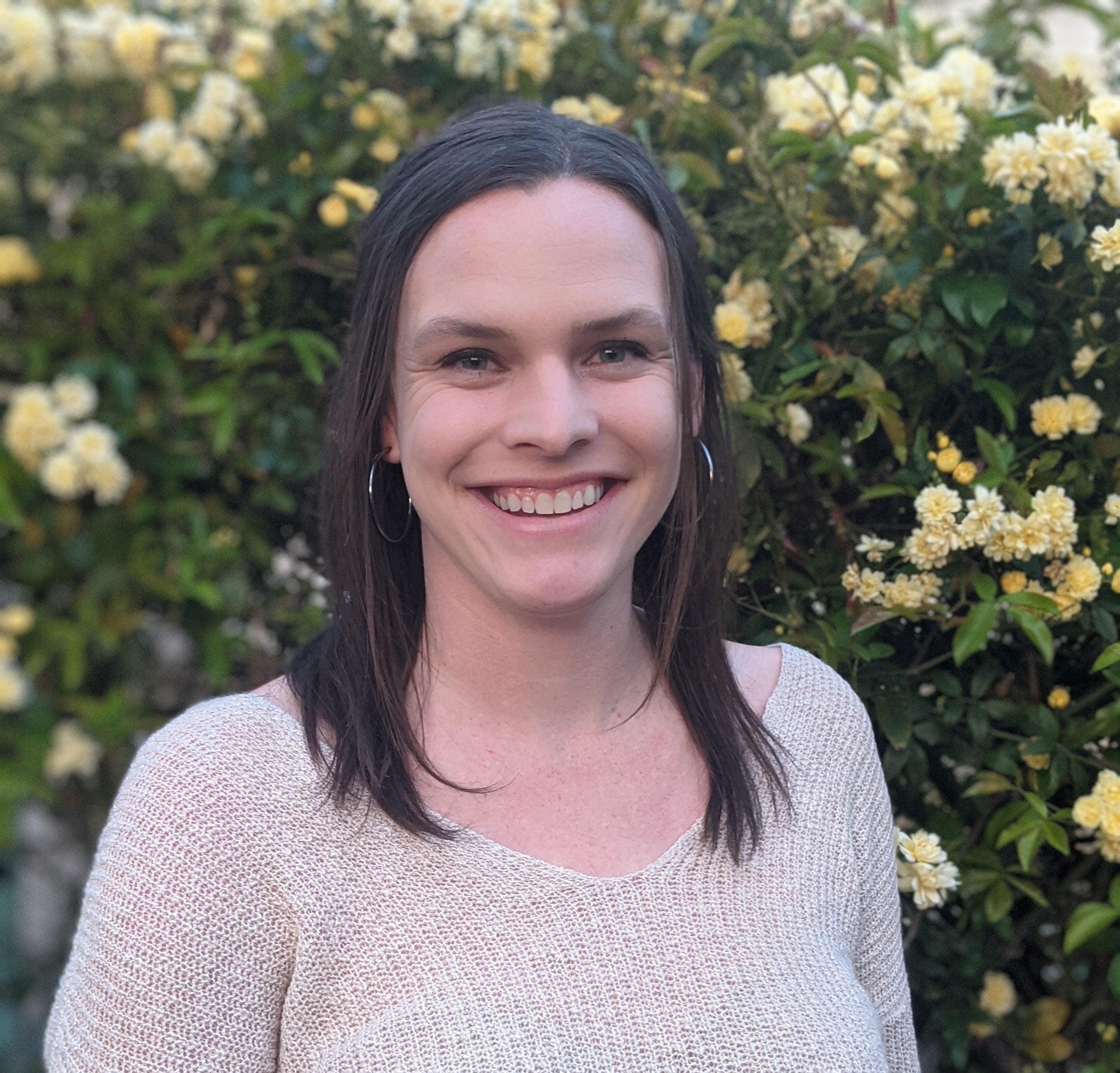
Lisa McCorkell
Lisa McCorkell, MPP, born in 1992, is the co-founder of the Patient-Led Research Collaborative (PLRC), a group of people with Long COVID who conduct research on Long COVID. She has presented PLRC's work to Congress, NIH, CDC, the President's COVID-19 Health Equity Task Force, and more, and has co-authored several research papers and chapters on Long COVID. She is a policy expert, with a background in social safety net, public health, labor policy, advocacy, writing, and research. She has a Masters of Public Policy from UC Berkeley and a Bachelor of Arts in Political Science from UCLA.
Keywords: activism during the COVID-19 pandemic, gender and health
Media: Transcript (English), YouTube Video, Name Pronunciation Audio

Netia McCray
Netia McCray is an educator whose global non-profit organization, Mbadika (bah-GEE-kah), has helped thousands bring their ideas to reality through leveraging STEM. For over 10 years, Netia has worked to demystify STEM in order to make it accessible to typically disadvantaged groups. As a March 2020 Longhauler, she has witnessed first hand the short and long term devastation that Long COVID has brought to not only her community but to communities worldwide. Netia believes knowledge is power and being able to obtain appropriate care and support starts with equitable access. Through her work with C-19 LAP, she utilizes her educational background to demystify Long COVID and recovery for communities like hers that shouldered the burden of the COVID pandemic.
Keywords: activism during the COVID-19 pandemic, education, intersectionality
Media: Transcript (English), YouTube Video, Name Pronunciation Audio

Dona Murphey
Dona Murphey, born in 1979, is a neurologist, neuroscientist, historian of science, and community organizer. She has navigated local, state, federal, and international partnerships across academia, government, and health tech sectors in rapid response and strategic mobilizations at the intersections of race, poverty, and immigration. Her belief in the foundational democratic rights to health, migration, public education, and voting have informed her extensive grassroots activism and nonprofit advocacy and a run for her local school board in Texas. Her current project is a public benefit start-up that marries her scientific and clinical expertise with a community organizing ethos to develop a digital diagnostic tied to culturally and language specific content and community health worker access to help eliminate racialized health disparities in dementia.
Keywords: activism during the COVID-19 pandemic, community activism, disability rights, intersectionality
Media: Transcript (English), YouTube Video, Name Pronunciation Audio
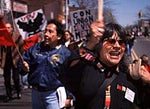
Martha Ojeda
Martha Ojeda, born in 1956, is the Executive Director of the Tri-National Coalition for Justice in the Maquiladora, where she directs the Maquiladora Worker Empowerment Project. While a worker in the Free Trade Zone factories, she led the Nuevo Laredo Sony Movement and wrote a manual on Mexican Federal Labor Law. She has received the Petra Foundation Award, "Troublemaker of the Year" by Mother Jones Magazine, and the Quality of Life Champion's Public Service Award.
Keywords: environment, international rights, intersectionality, politics and the law
Media: Transcript (English), Video, Bibliography, YouTube Video, Name Pronunciation Audio
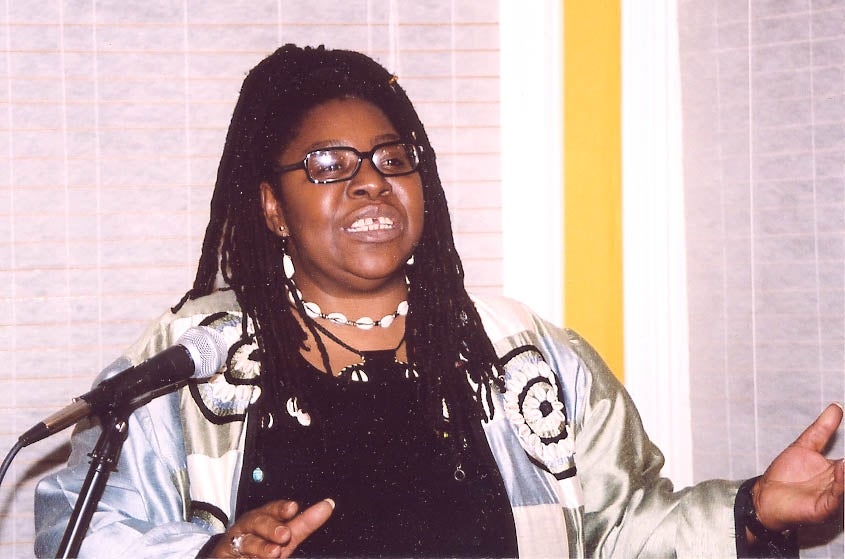
Loretta Ross
Loretta Ross, born in 1953, is an activist and was one of the first African American women to direct a rape crisis center. She has served as director of the Women of Color Programs for the National Organization for Women, as national co-director of the March for Women's Lives in DC, and as National Program Research Director for the Center for Democratic Renewal. She founded the National Center for Human Rights Education and co-authored "Undivided Rights: Women of Color Organizing for Reproductive Justice". She is a founding member and most currently a national coordinator of SisterSong Women of Color Reproductive Health Collective. The New York Times published an article about Loretta Ross on November 19th, 2020, which can be found here. Congratulations to United States GFP interviewee Loretta Ross on being named a 2022 MacArthur Fellow!
Keywords: gender and health, feminist conferences, gender-based violence, intersectionality, reproductive rights
Media: Transcript (English), Video, Bibliography, YouTube Video, Name Pronunciation Audio
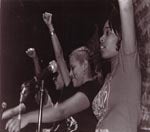
Sista II Sista
Sista II Sista is a Brooklyn-wide, community-based organization located in New York. It is a collective of working class young and adult Black and Latino women building together to model a society based on liberation and love. The organization is dedicated to working with young women of color to develop personal, spiritual and collective power, and is involved in a variety of projects, including The Freedom School for Young Women of Color, The Big Mouth Project, and Sista Liberated Ground.
Keywords: community activism, gender-based violence, intersectionality
Media: Transcript (English), Video, Bibliography, YouTube Video, Name Pronunciation Audio
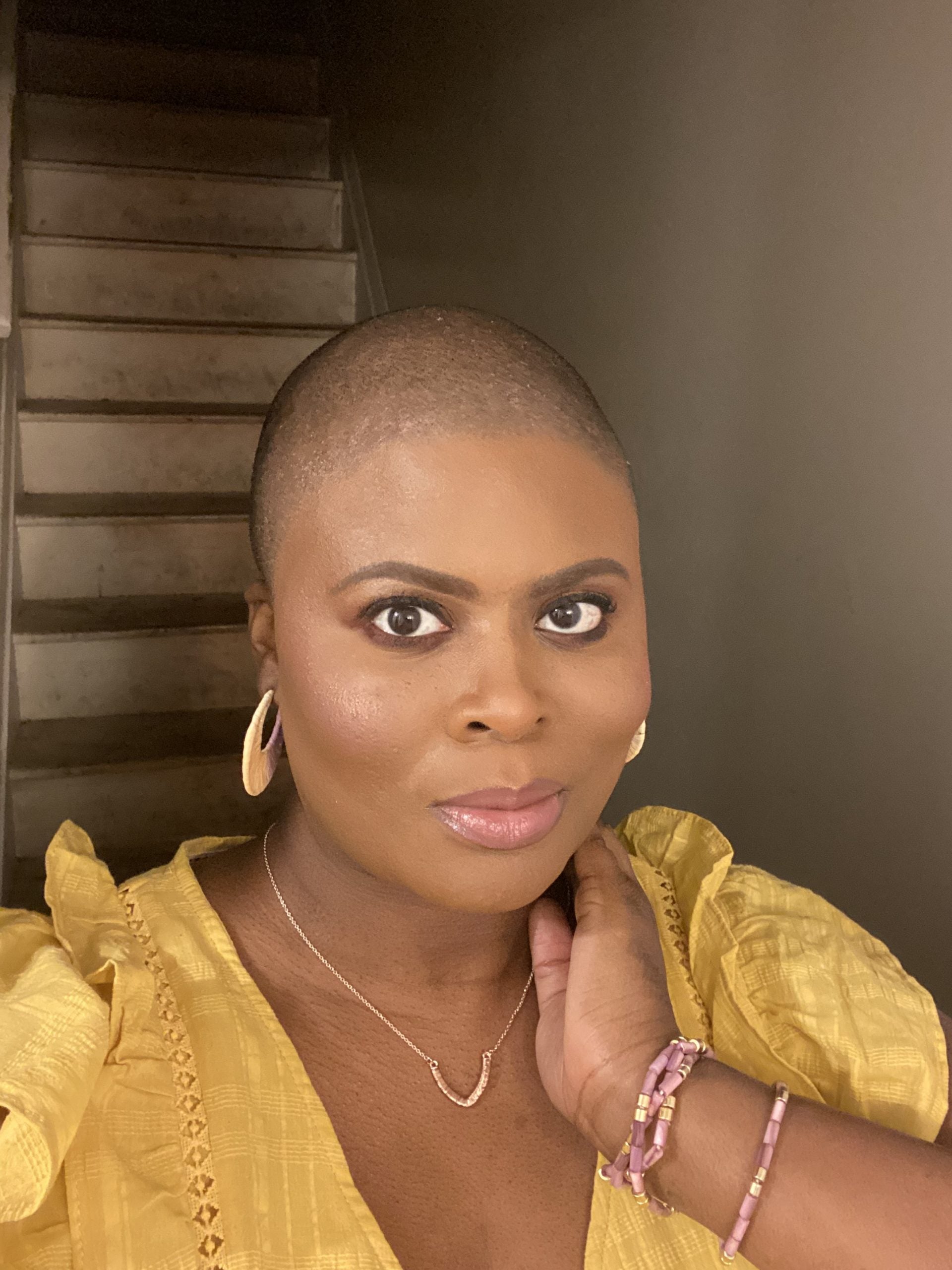
Chimére L. Smith
Suffering with the debilitating effects and symptoms of Covid-19 for nearly a year, Chimére L. Smith, born in 1982, has had to learn the hard knocks of advocacy in healthcare. While seeking treatment and care, she experienced racism, sexism, and dismissal by several medical professionals. Chimére boldly took matters into her own hands by challenging Baltimore hospitals for better, comprehensive treatment for herself and other Black Long Covid patients in urban communities. She is an author, speaker, highly-requested panelist, and thought leader who unapologetically shares her Long Covid journey — including balancing the effects of her disability emotionally, physically, and financially. Chimére Smith has been featured on CBS, CNN, MSNBC, NPR, PBS, and in The Washington Post, and The New York Times. She has written for Huffington Post, Medium, The Long Covid Survival Guide, and She Knows.
Keywords: activism during the COVID-19 pandemic, disability rights, gender and health, media
Media: Transcript (English), YouTube Video, Name Pronunciation Audio

Andrea Lee Smith
Andrea Lee Smith, born in 1966, is an activist/educator. She served as a delegate to the United Nations World Conference Against Racism in Durbin (1991), representing the Indigenous Women's Network and the American Indian Law Alliance. She is one of the founding members of Incite! Women of Color Against Violence, and is the co-founder of the Chicago chapter of Women of All Red Nations (WARN). She has organized several conferences, including the Color of Violence I & II Conferences, Race, Gender and the War Community Forum, and Decolonizing Methodology and Beyond: Constructive Proposals for Indigenous Methodologies.
In the period since this interview, significant doubt has been cast on Dr. Smith's assertion of a Native American or Woman of Color identity. We have retained her interview in this collection of oral histories because her interview was part of the original archive, and because we believe that scholars can and should study what she said in the interview in the context of subsequent conversations (see the articles below, including an open letter from Indigenous women, for more context).
Articles
Barker, J. and others (2015/2018). Open Letter From Indigenous Women Scholars Regarding Discussions of Andrea Smith. Indian Country Today. (originally published July 7, 2015; updated Sept. 12, 2018). https://indiancountrytoday.com/archive/open-letter-from-indigenous-women-scholars-regarding-discussions-of-andrea-smith
Viren, S. (2021, May 26). The native scholar who wasn’t. New York Times Magazine. https://www.nytimes.com/2021/05/25/magazine/cherokee-native-american-andrea-smith.html?campaign_id=190&emc=edit_ufn_20210526&instance_id=31650&nl=updates-from-the-newsroom®i_id=77849961&segment_id=59119&te=1&user_id=a41227382243ef7aa71174705b181411
Keywords: intersectionality
Media: Transcript (English), Video, Bibliography, YouTube Video, Name Pronunciation Audio
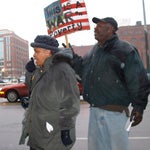
Maureen Taylor
Maureen Taylor (interviewed with Marian Kramer) is a social worker and community activist. She has served as chair of the Michigan Welfare Rights organization and was elected treasurer of the National Welfare Rights Union. She defends recipients of public aid at the Michigan Family Independence Agency in case disputes, and directs the Detroit NFI Community Self Sufficiency Center. She was awarded the National Community Leader Award from the National Black Caucus in Washington, DC. Taylor and Kramer spoke at a rally in Detroit, Michigan in June 2020, and a video of their speech recorded by the group Detroit Will Breathe can be found here.
Keywords: gender and health, media, community activism, politics and the law
Media: Transcript (English), Video, Bibliography, YouTube Video, Name Pronunciation Audio









